Oldest Countries in Europe: Europe is the second-smallest continent after Australia, and it is made up of about 50 separate sovereign independent states. Given its extensive history, it should come as no surprise that some of its nations date back countless years! Countries have grown and collapsed, populations have migrated, and the area where countries are located has been inhabited for millions of years.
Surprisingly, there aren’t many nations that have endured for tens of thousands of years, and pinpointing a nation’s birthdate is challenging. We’ve compiled a list of the world’s oldest nations from those historic kingdoms on that old continent.
Top 10 Oldest Countries in Europe
The ten oldest nations in Europe are shown below.
1. Bulgaria: Bulgaria is often acknowledged as being the oldest nation in Europe, despite some disagreement over this matter. In particular, it is the only nation to retain its original name since its founding. The most frequently recognized date for the founding of Bulgaria is AD 681. Khan Asparuh was the ruler of the Proto-Bulgarian people during the time.
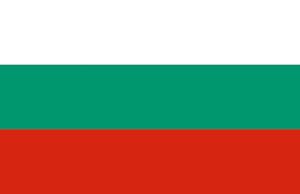
In AD 681, they made their way over the Danube River and founded their own state just south of it. The borders of Bulgaria have changed several times since then, but the nation’s name has stayed the same, making it the oldest in Europe.
2. Portugal: Although Portugal is among the oldest nations in Europe, it is not the oldest. Portugal was established in AD 1143. Galicia, which at the time was a part of the kingdom of Leon, was invaded by the ruler of the Portuguese realm this year, leading to the independence of the kingdom of Portugal.
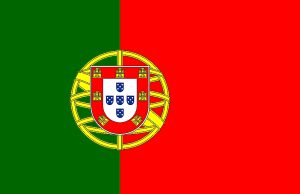
Portugal was founded following the conclusion of this conflict, and it has remained a separate nation ever since. As a result, although it is among the oldest in Europe.
Recommended: Countries with the highest job opportunities
3. Denmark: One of the oldest nations in Europe is Denmark. Denmark was established in AD 965. Denmark has had several expansions and contractions since that time. For instance, Denmark launched a few invasions of the United Kingdom during the Middle Ages, but it never managed to successfully hold territory on the island.
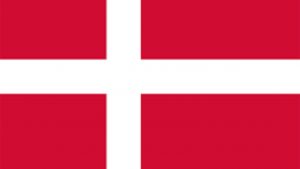
Denmark has also made several forays into Scandinavia, but those nations have maintained their independence. Denmark is still one of the oldest nations in all of Europe, although being much smaller now than it was at its height of glory.
4. Sweden: The origins of Sweden are exceedingly mysterious in history. Sweden was known as Svealand before the 8th century, possibly even earlier. This is a rather old nation state, nevertheless, given the unified Kingdom of Sweden was not created until some time in the 12th century.
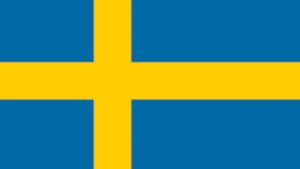
Sweden is renowned for having high living standards. It ranks highly in the categories of education, healthcare, equality, economy, and civil liberties and has the eighth-highest per capita income. By area, it is the third-largest nation in the EU.
Also see: Most Beautiful States In India (With Pictures)
5. France: One of the oldest nations in Europe is France. Despite having a distinctive history, France was founded in 843 AD. France’s boundaries have been altered a few times, and Nazi Germany even invaded the country during World War II. Due to Napoleon’s earlier attempts to rule the world, France has also carried out a significant amount of occupation. He did it twice, in fact.

In spite of numerous expansions and contractions, France’s borders today are comparable to those from the Middle Ages. Nazi Germany began to occupy France in 1940, and the Allies—specifically, the United States and the British—liberated it in 1944.
6. England: The Anglo-Saxon monarch Thelstan chose to combine the several Anglo-Saxon kingdoms into one independent state, which resulted in the formation of the Kingdom of England. The kingdom joined Denmark and Norway to form the Cnut the Great’s North Sea Empire. Before becoming the contemporary England we know today, it would undergo a great deal of changes.
This country is often tagged as the first industrialized nation. Today, England is a part of the United Kingdom of Great Britain and Northern Ireland. According to nominal GDP, its economy is the fifth largest in the world (ninth-largest based on purchasing power parity). Many other countries have also adopted England’s parliamentary system, and the UK is a permanent member of the UN Security Council.
Also see: Things To Consider Before Buying/Purchasing A Land
7. San Marino: One of the world’s tiniest nations is the Republic of San Marino, also called the Most Serene Republic of San Marino, with a population of just 33,562 and a land area of barely 24 square miles. San Marino is still one of the oldest sovereign state in the world, having adopted a written constitution in 1600. As the first republic with a constitution, it set the standard for other countries.
San Marino was established as a separate monastic community by a stonemason by the name of Marinus, who originated from a Roman colony. In terms of GDP per person, it is currently among the richest nations in the world. It also has one of the lowest unemployment rates on the continent, a budget surplus, and no external debt.
8. Greece: Greece has been firmly held in the hands of Greeks for at least 5,000–6,000 years, dating back to the time of the Ancient Greeks. The world was known to have learned ground-breaking ideas from the Greeks, who also laid the foundations for contemporary Western culture.
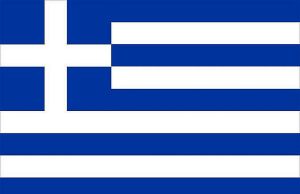
They made enormous strides in lawmaking, politics, law, technology, the arts, and literature, and Athens was the birthplace of the world’s first democracy (something that, over 5,000 years later, many countries are still trying to grasp the meaning of). Greece currently has different borders than it had in Ancient Greece, and the nation has changed hands, yet much of its ancient culture is still discernible, making it one of the oldest nations not just in Europe but also in the world.
Also see: Advantages And Disadvantages of Corporal Punishment
9. The Netherlands: In order to rule themselves after failing to find a suitable candidate to ascend to their separate thrones, the newly liberated provinces then established the Dutch Republic. Eventually, the Dutch Republic would become the Netherlands.
The Netherlands, which had an elected parliament for the third time, is renowned for its liberal principles. Indeed, it was the first to legalize same-sex unions in 2001. Additionally, it is a founding member of numerous associations, such as the Eurozone and the EU. The nation offers a wealth of social benefits and rates extremely highly in terms of press freedom, economic freedom, happiness and quality of life, and human growth. It is renowned for its egalitarianism, particularly in terms of its taxation policy.
10. Switzerland: Communities residing in the valleys of the Central Alps came together to promote free commerce and other mutual interests, and as a result, the Swiss Confederation started to expand. What is today known as Switzerland was formed as a result of this informal collaboration.
The area was initially governed by the Holy Roman Empire, although it also enjoyed a high degree of autonomy. The Federal Charter, which is regarded as the founding text of the Swiss Confederacy, was drafted and adopted in 1291 by a number of rural communes.
Switzerland is undoubtedly one of the most developed nations in the world today. It is renowned for its neutrality and scores highly for wealth, quality of life, civil liberties, economic progress, and affluence.
Recommended: Most Awarded Artists/Musicians In Nigeria
Conclusion
The second-smallest of the seven continents, with a surface area of only 2%, Europe is nevertheless brimming with history. Europe has a rich, illustrious past with a cultural legacy that dates back thousands of years, from the time of classical antiquity, which saw the rise and fall of Ancient Greece and the Roman Empire, to the Renaissance and Industrial Revolution. It should come as no surprise that Europe is home to several very old nations given its rich history. Which of these nations would you prefer to visit to learn more about their diverse cultures?

Edeh Samuel Chukwuemeka, ACMC, is a lawyer and a certified mediator/conciliator in Nigeria. He is also a developer with knowledge in various programming languages. Samuel is determined to leverage his skills in technology, SEO, and legal practice to revolutionize the legal profession worldwide by creating web and mobile applications that simplify legal research. Sam is also passionate about educating and providing valuable information to people.
The Kingdom of Hungary? King Steven became Hungary’s King at 972 A.D.